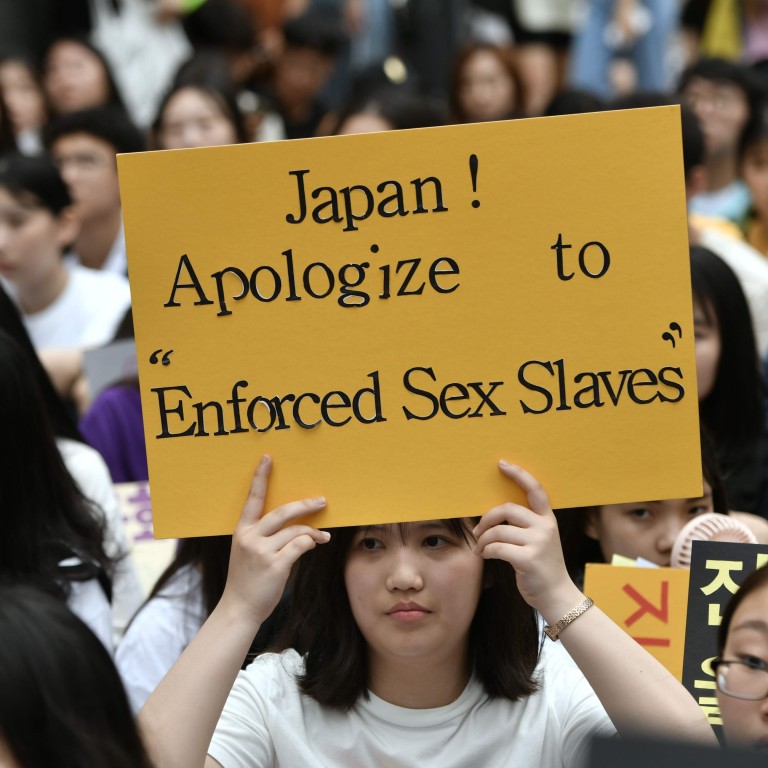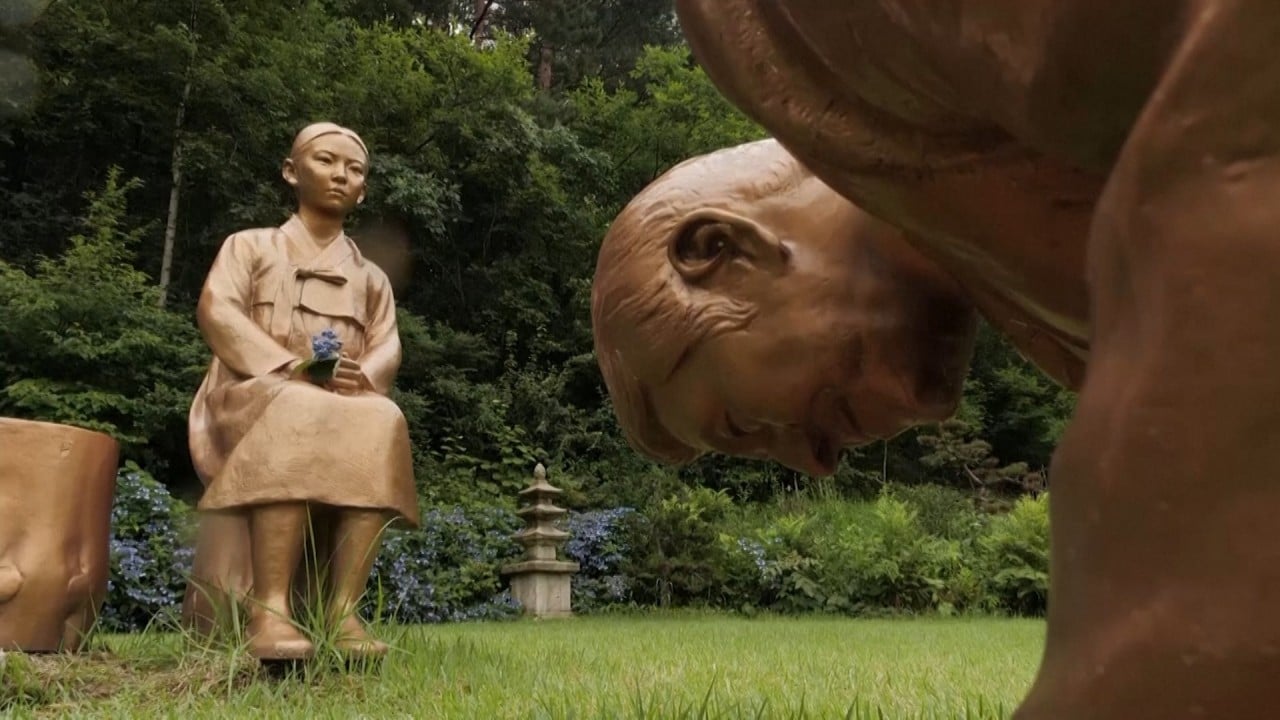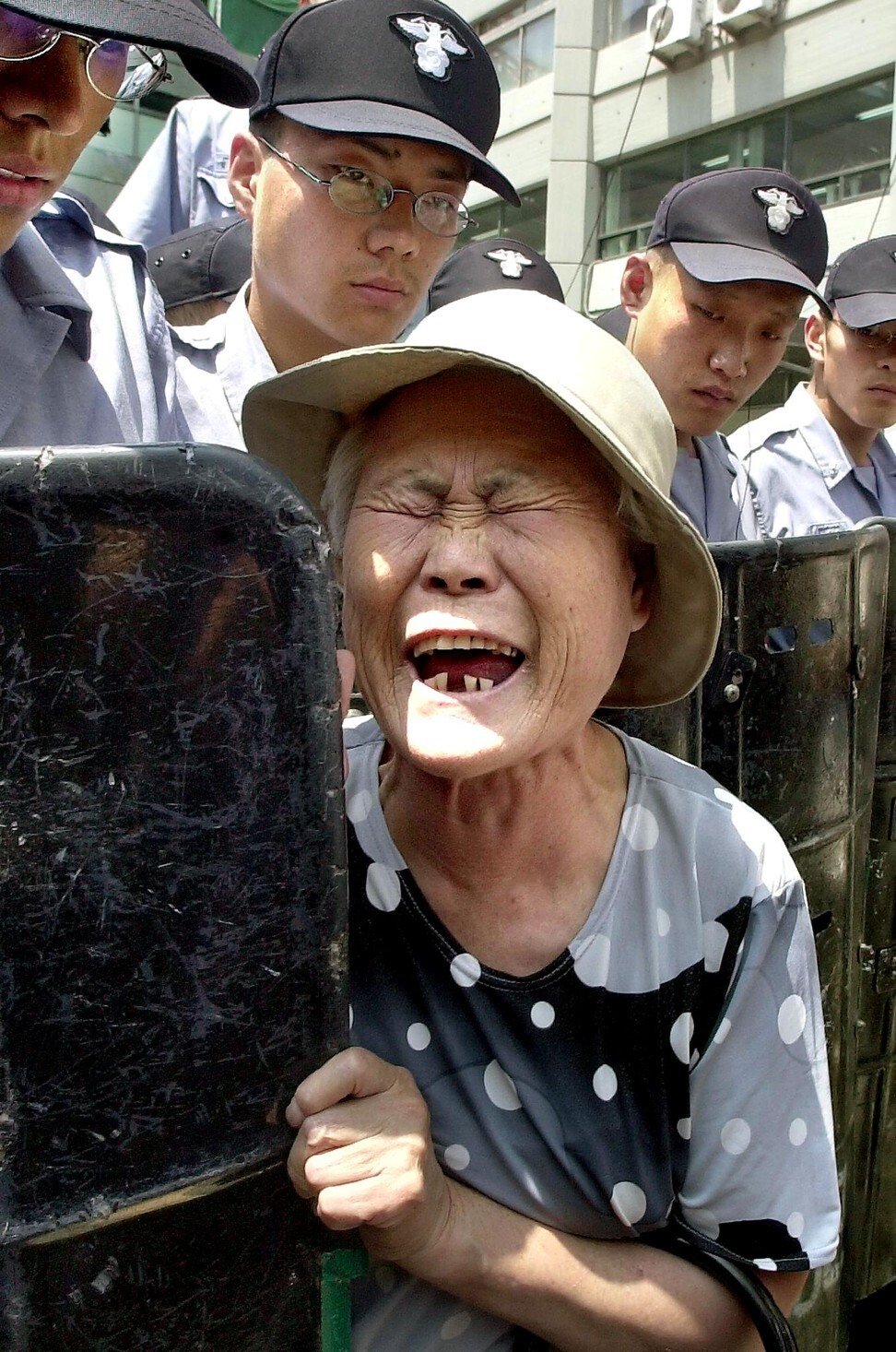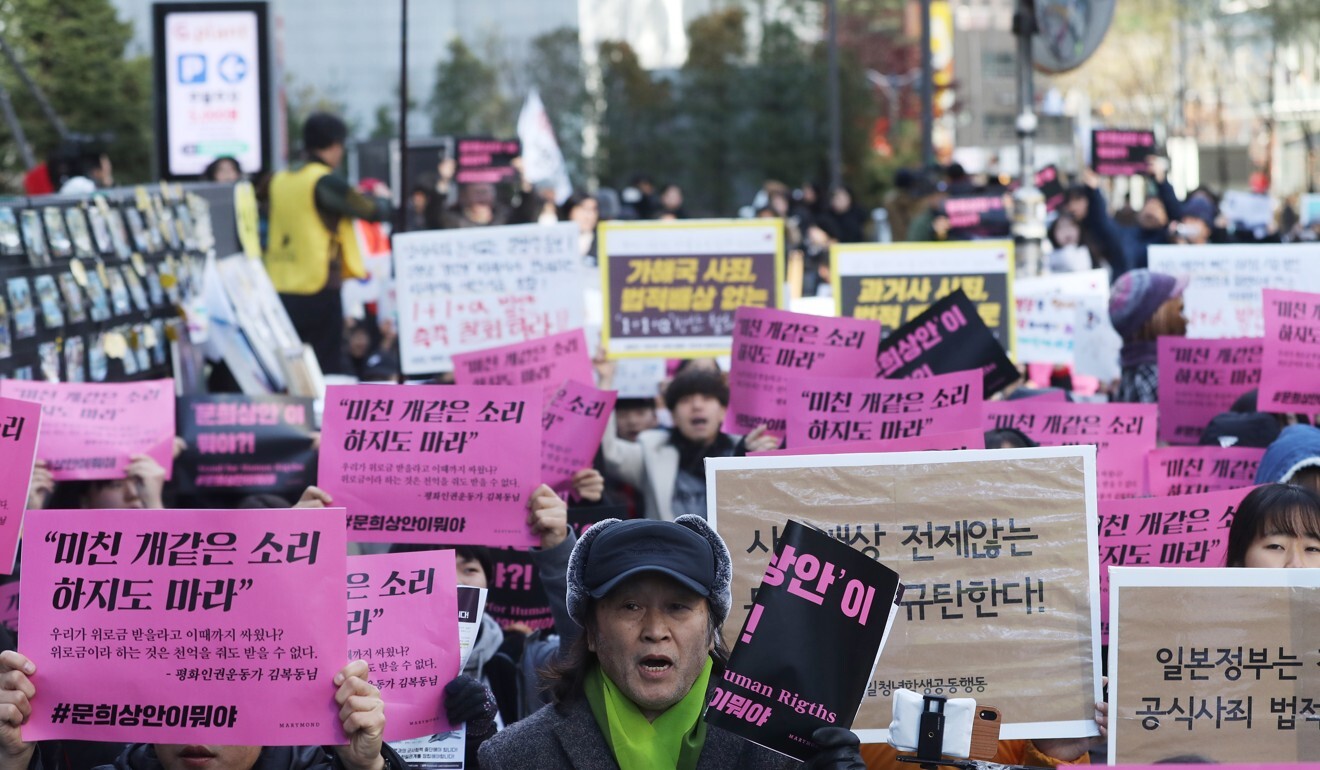
Japan’s Suga rejects South Korean court order to pay former wartime sex slaves
- Prime minister says issue was already ‘resolved completely and definitely’ after Seoul court rules that Japan should pay the victims US$91,000 each
- It was the first civilian legal case in South Korea against Tokyo by wartime sex slaves, euphemistically labelled ‘comfort women’
“This lawsuit should be rejected. The comfort women issue between Japan and South Korea … has already been resolved completely and definitely,” Japanese Prime Minister Yoshihide Suga told reporters.
“Our country will never accept this ruling,” he added.
Japan-South Korea deadlock to remain, despite Biden’s push for mend in ties
“The plaintiffs seem to have suffered extreme mental and physical pain,” the court said in its decision.
“The plaintiffs, who were in their late teens or early 20s, were subjected to repeated sexual exploitation. It amounted to an illegal act against humanity and the defendant has an obligation to compensate the victims for their mental suffering.”
Suga called for the case to be dismissed, saying that under international law, a sovereign nation can’t be subject to the rulings of another country’s court.
“Our country absolutely cannot accept this kind of verdict,” Suga said. “So we strongly urge the South Korean government to take steps to rectify this situation, which is a breach of the law.”
Japanese Foreign Minister Takeo Akiba summoned South Korean ambassador Nam Gwan-pyo to the ministry to protest, telling him that the ruling was “utterly unacceptable”.
Japan will not appeal the ruling as doing so would put the country under South Korea’s jurisdiction, top government spokesman Katsunobu Kato told a press conference.

01:29
South Korea’s ‘comfort women’ statues featuring PM Abe ‘lookalike’ spark anger in Japan
The South Korean plaintiffs filed a lawsuit against the Japanese government in 2013, demanding compensation. The court said Japan had refused to accept documents related to the matter and it rejected claims that Tokyo can invoke state immunity to the lawsuit.
In 2015, Japan and South Korea announced a “final and irreversible” agreement that came with a personal apology to the women from former Japanese Prime Minister Shinzo Abe as well as about US$9.3 million for a compensation fund.

Tensions further flared after a series of South Korean court decisions from late 2018 demanding Japan pay compensation to Koreans conscripted to work at Japanese factories and mines during the country’s 1910-45 colonial rule over the Korean peninsula.
The US was forced to step in when South Korea threatened in 2019 to withdraw from a joint intelligence-sharing agreement, with Moon backing down at the last minute after facing pressure from Washington.
Japan has said all claims were “settled completely and finally” under a 1965 treaty, which established diplomatic ties between the two countries.
Japan paid the equivalent of US$300 million – US$2.5 billion in today’s money – and extended US$200 million in low-interest loans. South Korea invested the money in industries that eventually helped turn it into an economic powerhouse.

Historians say anywhere from 50,000 to 200,000 women – many of them Korean – were forced into service in Japan’s military brothels.
“I am deeply moved by today’s ruling,” said Kim Kang-won, the women’s lawyer. “It is the first such verdict for victims who suffered at the hands of Japanese troops.”
Speaking to reporters after the verdict, he insisted that at the time of the 1965 treaty, “the issue of comfort women was not discussed at all”.
As anniversary of Japan’s WWII surrender nears, legacy of conflict shapes ties with China and South Korea
The Japanese government denies it is directly responsible for the wartime abuses, maintaining that the victims were recruited by civilians and that the military brothels were commercially operated.
Kim Dae-wol, from the House of Sharing, which cares for the victims, said that reparations were not a major issue for them.
“Rather, their wish is to have the Japanese government inform its citizens of the atrocities it committed,” he said.
Additional reporting by Agence France-Presse, Kyodo and Reuters

